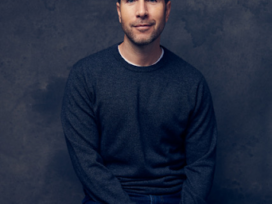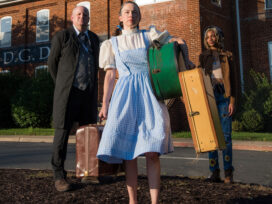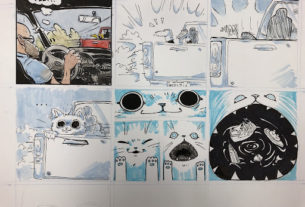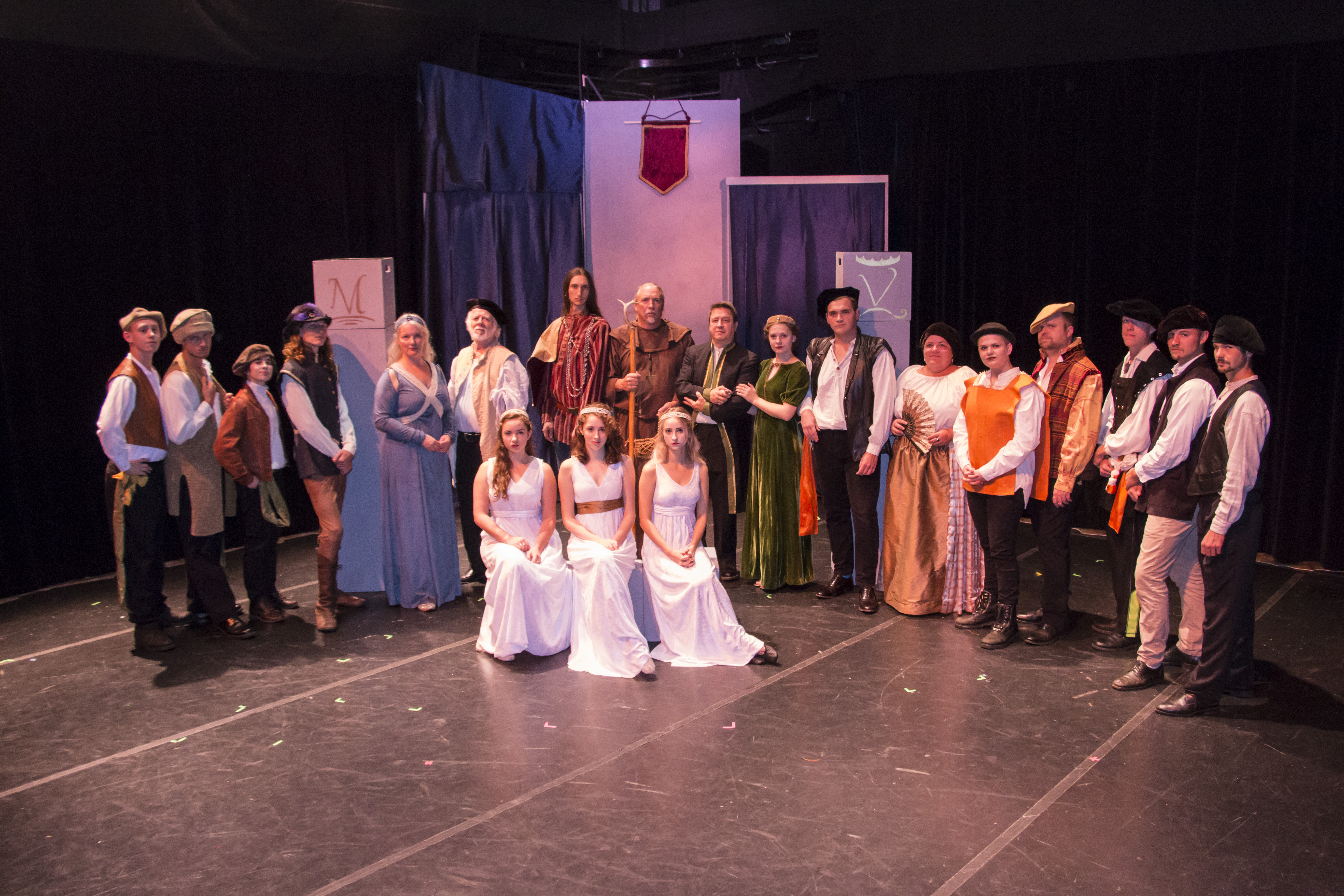
Who’s Afraid of Brad Stoller?
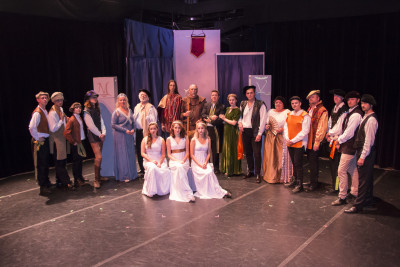
Isaac Rowlingson, staff writer
As I made my way to the Maxwell (Black Box) Theatre, I was transported back to the time of Shakespeare. On a clothes rack hung multicolored costumes and fabrics reminiscent of old England. A half-constructed castle was reaching up to the ceiling above the sounds of electric drills, shifting wood and stroking paint brushes. From out of the commotion came Brad Stoller. For five years, he has been an assistant professor of Theatre Arts and has directed and produced all of the plays at PVCC .
When questioned about his beginnings in drama, he said, “I was actually a football player and jock. Wasn’t interested at all.” He started with dance and gradually moved to acting because it was required for his college theatre education. He went on to say that he “got interested because I was studying with a guy who was doing very movement-based acting work called Polish Laboratory Theatre.”
“Never heard of that one,” I said.
He continued, “No, not many people have. So, the guy who started it was Jersey Gratowski, a polish director who was interested in the actor as shaman. He thought as the actor in more of religious terms, as a shaman who is in charge of creating an experience for the audience beyond the everyday. Using his or her whole self, especially the body.”
With a substantial number of plays behind him, I asked Brad why he chose to direct Romeo and Juliet this year in particular.
He said, “I decided to do Romeo and Juliet because it turned out we were going to do West Side Story in the spring, and they are the same story. A lot of people don’t actually know that they’re the same story. Its Romeo and Juliet in the Bronx in 1957.” Due to his personal love for the musical, he chose this opportune time to pair it with the original.
Considering the amount of behind-the-scenes work that goes into these productions, I asked him what his favorite moments were throughout the process and they tend to come before he meets with actors at all. He said, “Conceiving the ideas of how we’re gonna do it and what we’re gonna do. Sort of the conceptual stuff around how we’re gonna do it and what our concepts are gonna be, but in different shows, its different favorite moments. In some ways, like in this play, I’ve come up with I’m gonna have three Juliets.”
“They’ll be a prismatic expression of Juliet. So coming up with that idea, which happened after auditions, and then coming up with where that will fit in and how that would work. My favorite moments are when an idea like that starts happening, when we start seeing it come into expression.” He drew a comparison to his experience with Cabaret last spring, “when we decided to go steampunk, some of the moments were, ‘how are we going to fit that steampunk expression into the show?’” However, he did acknowledge that since he played a role in Cabaret, his favorite moments were acting stating that he “was having a great time.”
Finally, I asked him how theatre can be an inspiration for others. He said, “It’s inspiring to realize that what theatre does is helps us to realize we are all the same. That everybody’s experiencing the same gamut of emotional, psychological, physical challenges. And abilities, or joys, or possibilities, the same possibilities that expression can be so much greater than what we mostly do. So much greater.”
Romeo and Juliet will be Oct. 26-28 and Nov. 3-4 at 7:30 p.m. and Nov. 5 at 2:30 p.m. West Side Story will be April 5-7 at 7:30 p.m. and April 8 at 2:30 p.m. Tickets are $5.


